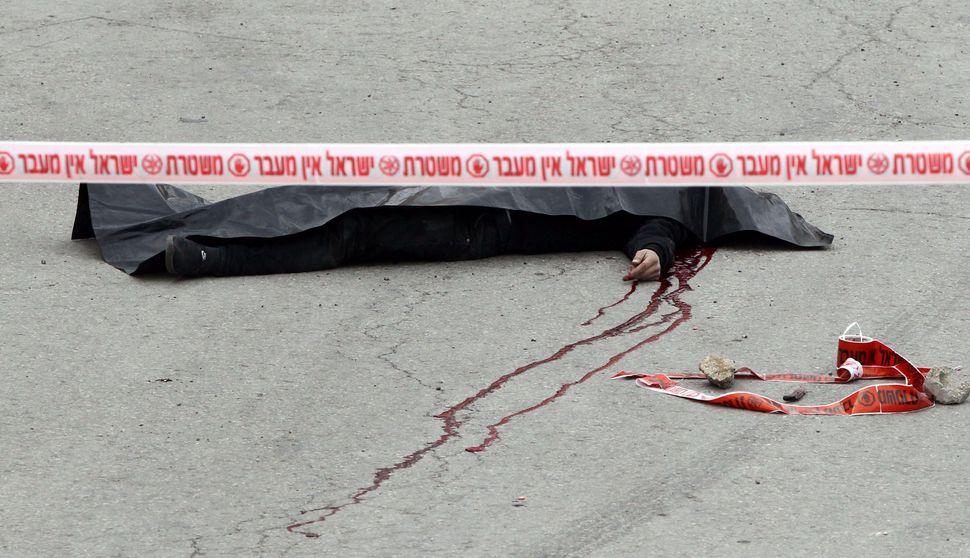Soldier Who Shot Downed Palestinian Terrorist: ‘I Feared Bomb Belt’

hebron shooting Image by Getty
JERUSALEM — The Israeli soldier who shot and killed a downed Palestinian assailant reportedly told a military appeals court that he could have been dead rather than in court if the attacker had been wired with explosives.
“My hands were full of my comrade’s blood. I was enraged. In a split second I decided to shoot,” he reportedly told investigators during a hearing in military appeals court on Tuesday. “If there was an explosives belt, I would be in the cemetery and not in court. You investigators at the investigative division are sitting in an office and not in the field where you can be shot at.”
The soldier later testified, according to Ynet, that he fired at Abdel Fattah al-Sharif, who had stabbed one of his fellow soldiers just moments before, because he feared being in danger.
During the hearing, the military prosecutor said a video of the incident shows that the soldier “was not moved and agitated as he claimed.” The prosecutor also confirmed that the autopsy on Sunday showed that the soldier’s shot to the head of the assailant was what killed him
The soldier, who has not been named, was seen in a video shooting al-Sharif, who with another Palestinian had stabbed Israeli soldiers in the West Bank city of Hebron on March 24. Soldiers killed al-Sharif’s accomplice but only wounded al-Sharif, who was believed to be alive when the soldier shot him while he was supine on the road.
The hearing was an appeal of the military court’s decision to allow the soldier to leave prison and remain confined to his base without a weapon.
A message from our Publisher & CEO Rachel Fishman Feddersen

I hope you appreciated this article. Before you go, I’d like to ask you to please support the Forward’s award-winning, nonprofit journalism so that we can be prepared for whatever news 2025 brings.
At a time when other newsrooms are closing or cutting back, the Forward has removed its paywall and invested additional resources to report on the ground from Israel and around the U.S. on the impact of the war, rising antisemitism and polarized discourse.
Readers like you make it all possible. Support our work by becoming a Forward Member and connect with our journalism and your community.
— Rachel Fishman Feddersen, Publisher and CEO























